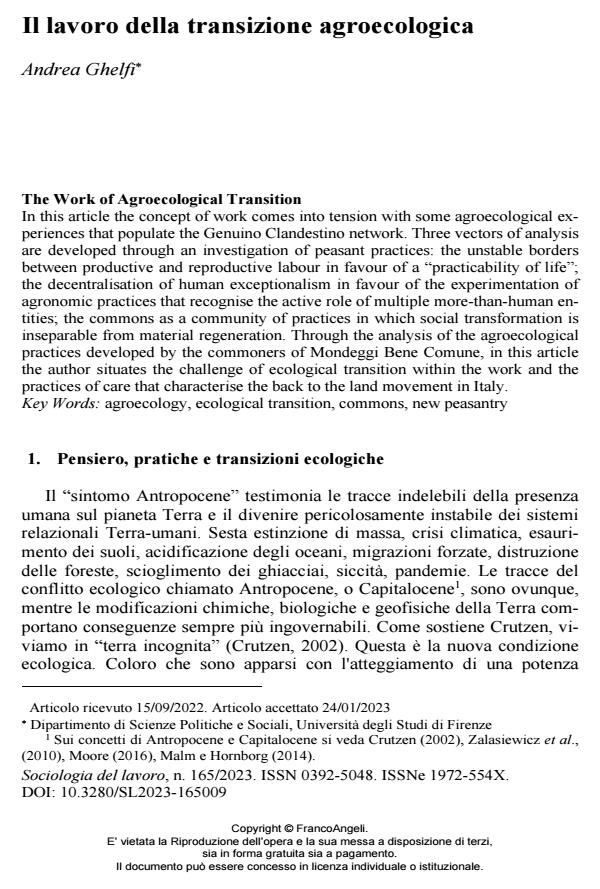The Work of Agroecological Transition
Journal title SOCIOLOGIA DEL LAVORO
Author/s Andrea Ghelfi
Publishing Year 2023 Issue 2023/165
Language Italian Pages 20 P. 178-197 File size 251 KB
DOI 10.3280/SL2023-165009
DOI is like a bar code for intellectual property: to have more infomation
click here
Below, you can see the article first page
If you want to buy this article in PDF format, you can do it, following the instructions to buy download credits

FrancoAngeli is member of Publishers International Linking Association, Inc (PILA), a not-for-profit association which run the CrossRef service enabling links to and from online scholarly content.
In this article the concept of work comes into tension with some agroecological experiences that populate the Genuino Clandestino network. Three vectors of analysis are developed through an investigation of peasant practices: the unstable borders between productive and reproductive labour in favour of a “practicability of life”; the decentralisation of human exceptionalism in favour of the experimentation of agronomic practices that recognise the active role of multiple more-than-human entities; the commons as a community of practices in which social transformation is inseparable from material regeneration. Through the analysis of the agroecological practices developed by the commoners of Mondeggi Bene Comune, in this article the author situates the challenge of ecological transition within the work and the practices of care that characterise the back to the land movement in Italy.
Keywords: agroecology – ecological transition – commons – new peasantry
- La giusta transizione tra questione sociale e questione ambientale: il potenziale ecologico delle mobilitazioni operaie Emanuele Leonardi, in GIORNALE DI DIRITTO DEL LAVORO E DI RELAZIONI INDUSTRIALI 177/2023 pp.99
DOI: 10.3280/GDL2023-177007
Andrea Ghelfi, Il lavoro della transizione agroecologica in "SOCIOLOGIA DEL LAVORO " 165/2023, pp 178-197, DOI: 10.3280/SL2023-165009